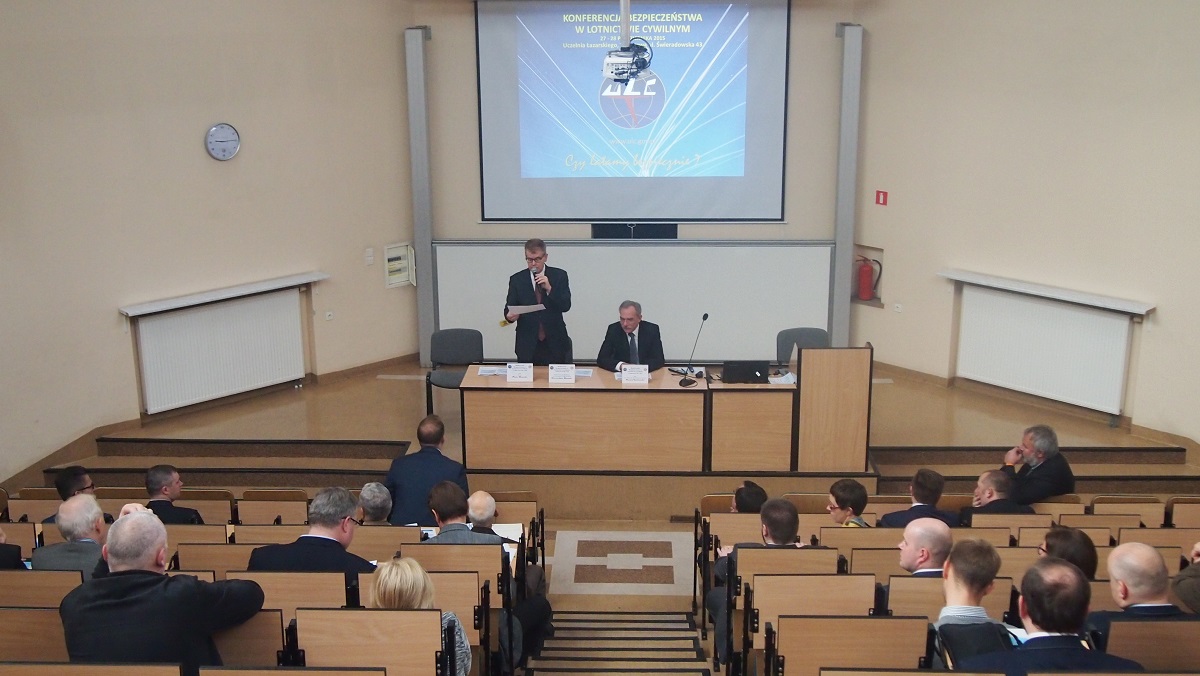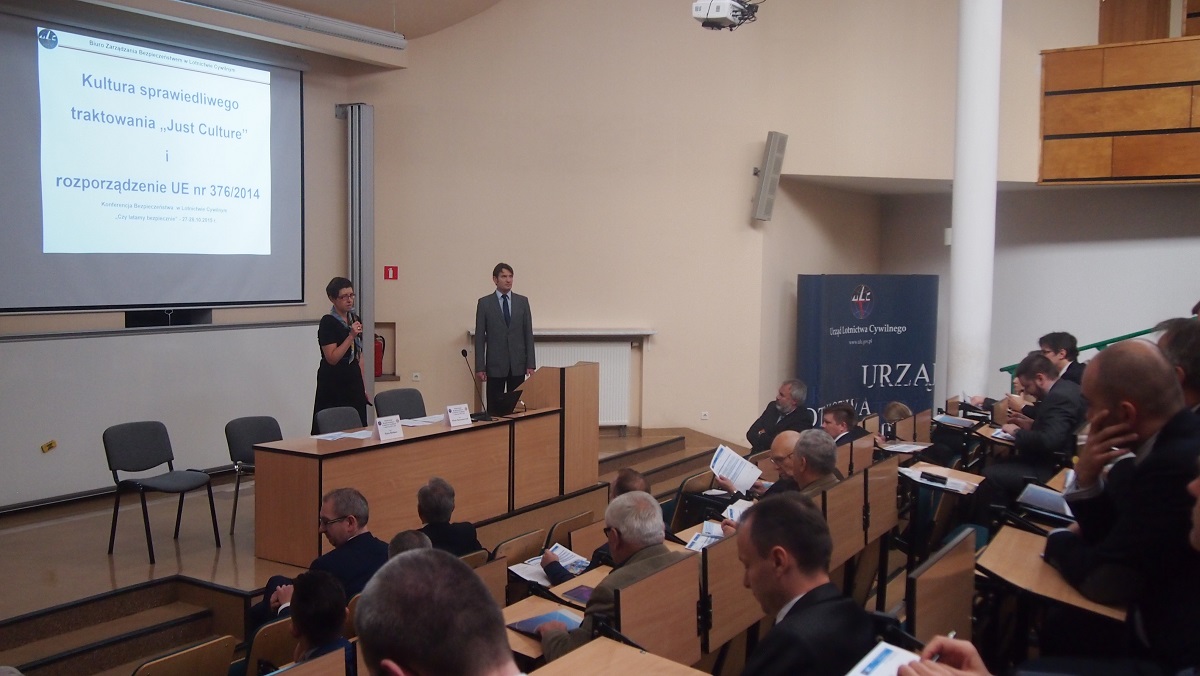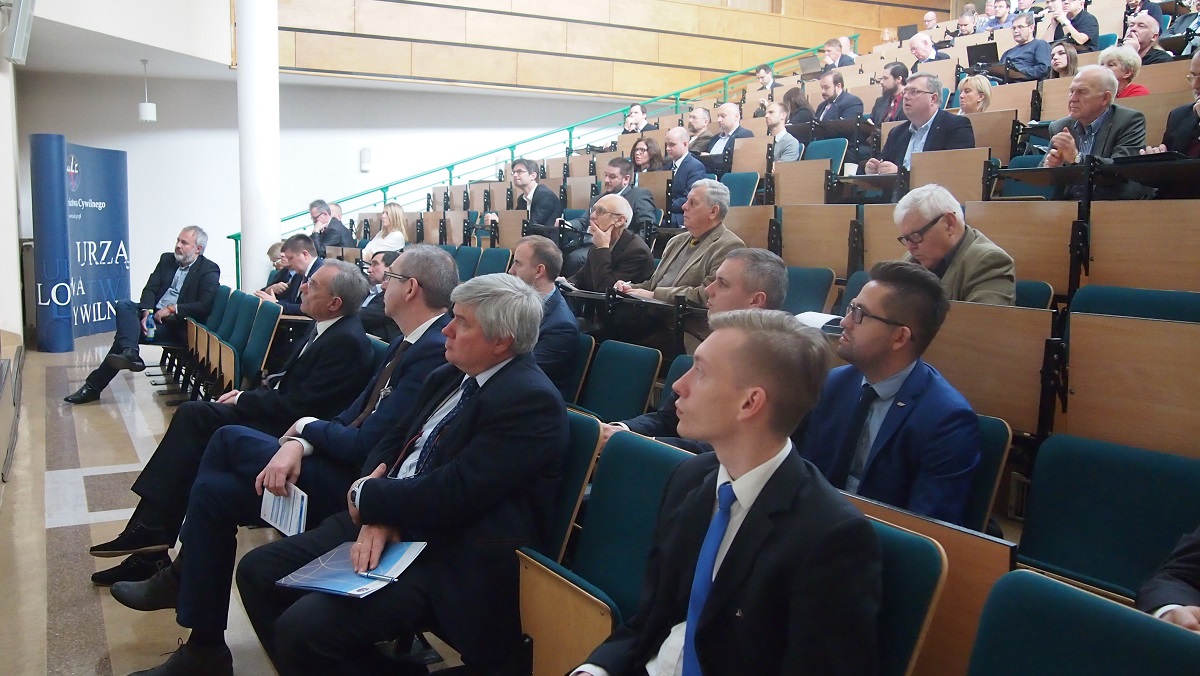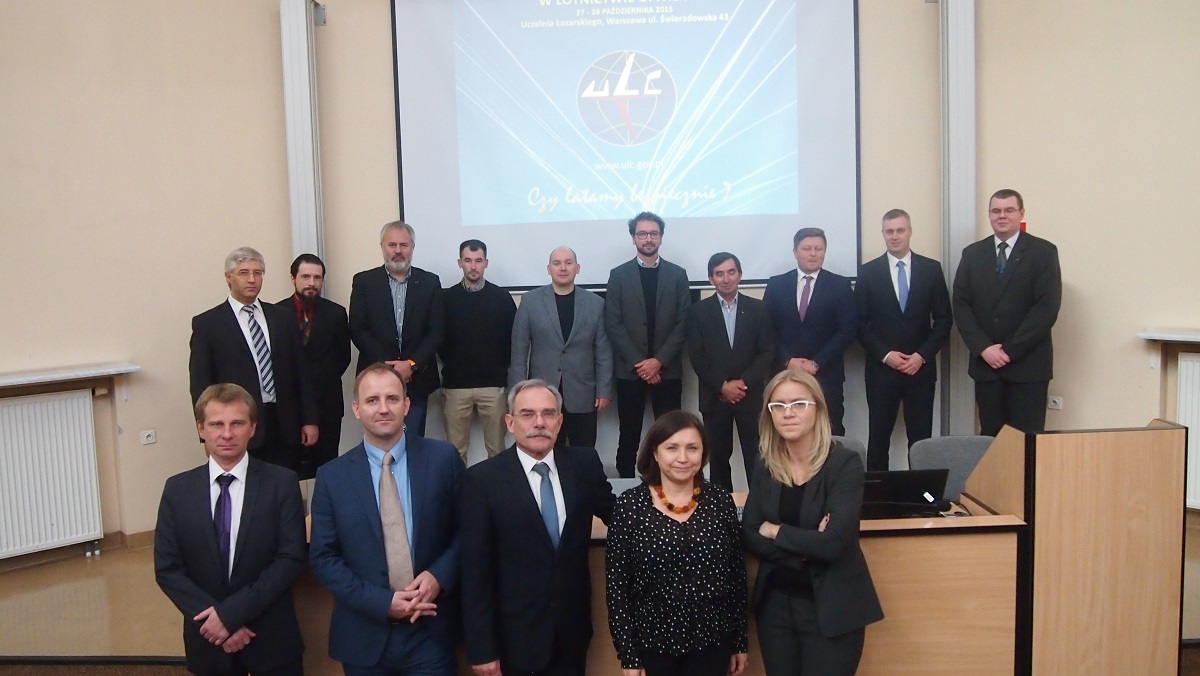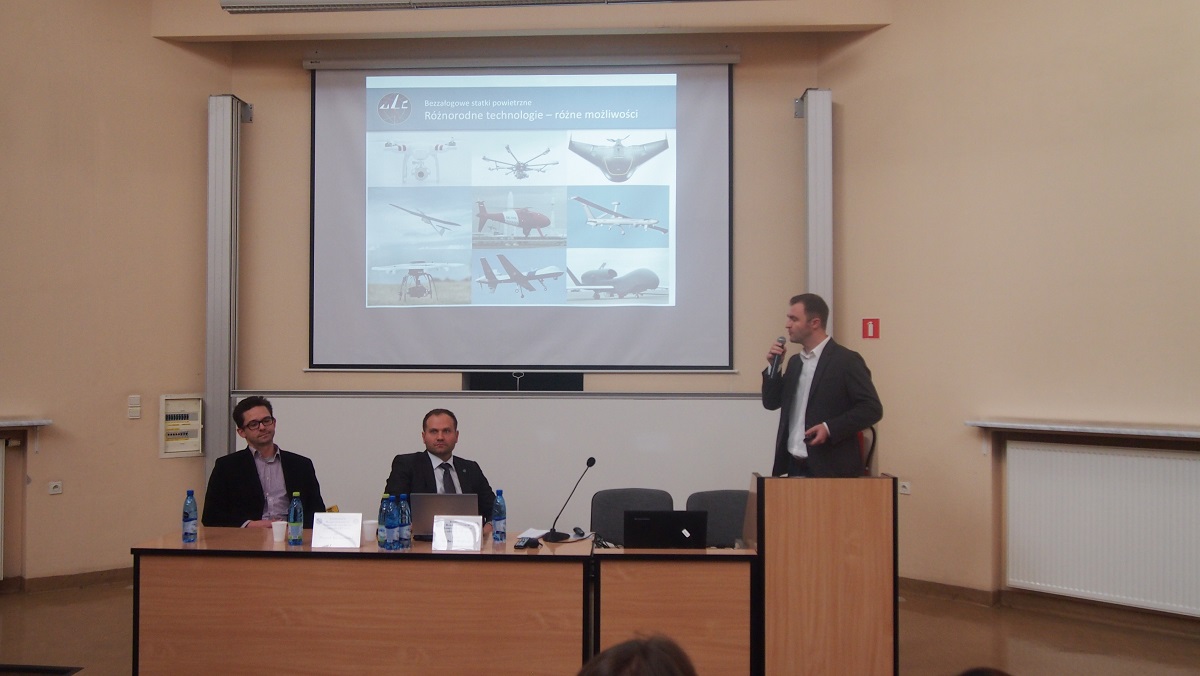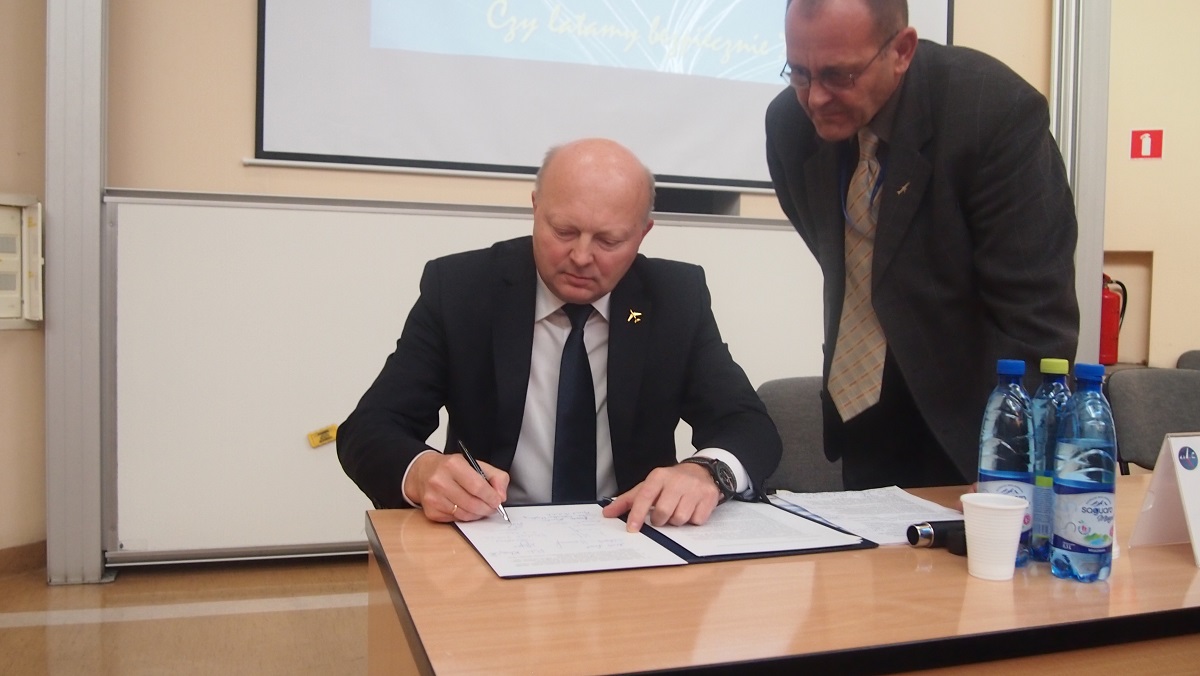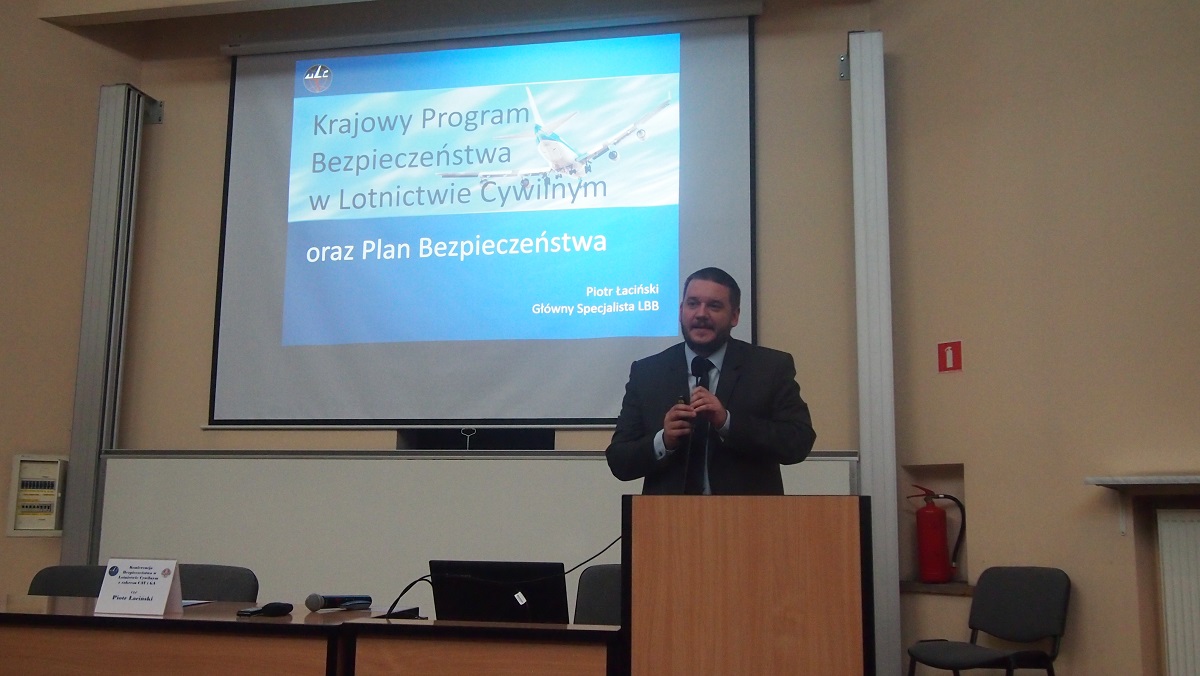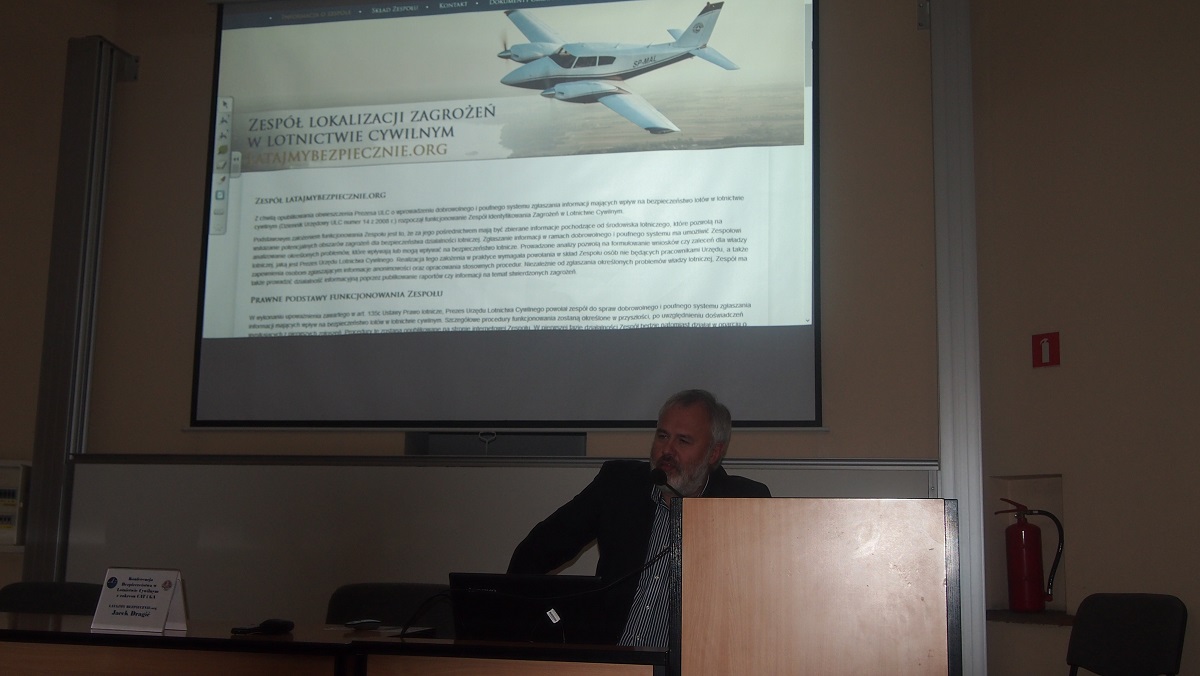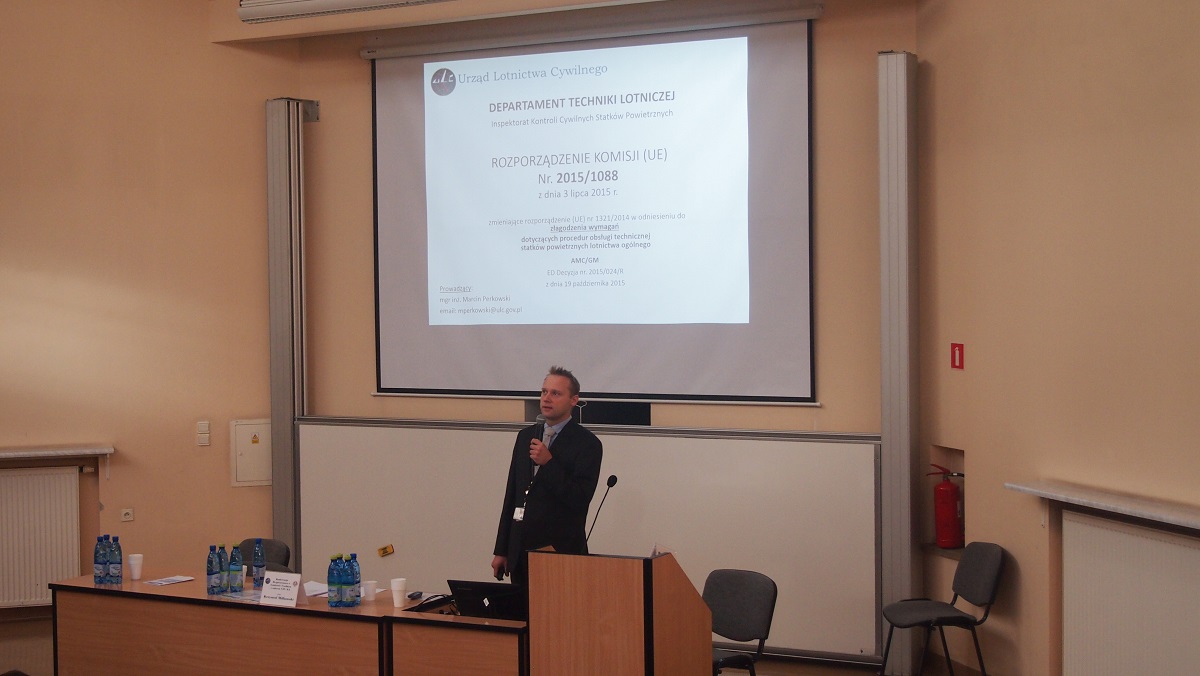On 27-28 October at Lazarski Univeristy the Conference on Civil Aviation Safety took place organized by the Civil Aviation Authority of the Republic of Poland. This is the second conference in the new form, during which the CAA and the participants tried to answer the question: "Do we fly safely?".
A large group of conference participants welcomed Mr. Maciej Kozlowski - Vice President. Standards Aviation Civil Aviation Authority and Dr. Mieczysław Błoński - Operating and Financial Vice President of Lazarski University, who thanked everyone for coming and wished a fruitful conference. President Kozlowski welcoming the guests particularly stressed the importance of exchange of experience between the authorities working for transport. He expressed the hope that the current cooperation among of the Railway Transport Office and the CAA will soon deliver the expected results.
On the first day of the conference was held the signing of the Declaration of Cooperation on "Just Culture". The Declaration refers to the declaration signed by the Commissioner of Transport Ms. Violeta Bulc and representatives of the aviation industry on 1 October, 2015. The European Corporate Culture Just Declaration, and its Polish equivalent’s objective is to encourage the implementation and promotion of key principles of the "Just Culture". The Declaration sets out a number of basic principles designed to encourage personnel involved in work relevant to safety, to report irregularities and adverse events without fear of consequences. As noted by Anna Kolmas - Director of Safety Management in Civil Aviation, the declaration remains open and all the stakeholders are encouraged to sign it. The declaration was signed by Mr. Piotr Ołowski - President of the CAA, Mr. Maciej Kozlowski - Vice President of the CAA, Mrs. Magdalena Jaworska - acting President of PANSA, Dr. Maciej Lasek - Chairman of SCAAI, Mr. Cezary Kaminski - Director of the Institute of Aviation, Mr. Rafał Bąkowski - Deputy Director of the IMGW, Mr. Radosław Paruzel - Deputy Director of PPL, Mr. Mariusz Osowski - Representative of the Association of Regional Airports, Mrs. Emilia Osewska-Mądry - Executive Director of the Board of Airlines Representatives in Poland (BARIP), Mr. Ryszard Michalski - The head of training of Aero Club of Poland, Mr. Piotr Kleczyński - Association of Unmanned Aerial Systems Mr. Jacek Dragic - Team Latajmy Safe, Mr Michael Pełka - Trade Union of Air Traffic Controllers, Mr. Konrad Radziejowski - Trade Union of Flight Information Service and Mr. Robert Hernand - Deputy Attorney General.
During the rest of the conference a declaration of cooperation between the Railway Transport Office and the Civil Aviation Authority was signed. The primary objective of the co-operation, which has lasted for a long time, is to find good solutions for the Polish transport in terms of safety.
After signing, Mr. Piotr Kaczmarczyk discussed issues related to aviation safety reporting and Mr. Rafał Wachnik with the RTO, presented the general approach to managing safety on the railway market.
Another presentation related to the potential risks associated with the use of unmanned aerial vehicles. Mr. Pawel Szymanski (CAA) stressed the lack of awareness of the aviation regulations among users of "drones" flying for recreational purposes. In today's increasingly universality and accessibility of these devices, raising awareness of the air traffic regulations is essential. He noted that the Civil Aviation Authority has already taken measures to educate those who want to fly for fun. This is to be among others information campaign "Fly wisely, be safe" and CAA’s guidelines for producers and retailers of "drones" in Poland, which are encouraged to include a leaflet prepared by the CAA with every drone sold in Poland. The representative of the Polish Air Navigation Services Agency presented while incidents of drones, which took place in Poland and abroad in recent years. He also encouraged the use of facilities for users of unmanned aircraft available on the website of PANSA, such as interactive maps illustrating the structure of the airspace in Poland, along with contacts for managing the different zones. The last presentation on events involving "drones" presented Mr Robert Laminitis with SCAAI indicating an increase in flight events involving the popular "drones".
In the last panel of the first day the representatives of the State Commission on Aircraft Accident Investigation - Dr. Maciej Lasek and Agata Kaczynska discussed the safety situation and statistics related to the number of incidents, serious incidents, aviation accidents and incidents reported to SCAAI and briefly describes some air events of 2015. SCAAI Chairman Dr. Maciej Lasek stressed the importance of proactive steps of SCAAI which are realized through training in aviation entities, conducting workshops on the investigation of aviation occurrences and training for prosecutors, police and other services. He noted that they are designed to improve the identification of risks and the quality of submissions of aviation occurrences, encouraging aviation entities to self-examination as a form of prevention and to improve cooperation at the with the SCAAI at the accident area. Agata Kaczynska stressed, however, that the investigation of accidents is a failure of the system, which if it works correctly, should never occur.
Further presentations related to the National Programme and Safety Plan, which was presented by Mr. Piotr Łaciński and the activities of the latajmybezpiecznie Team, which were presented by Mr. Jacek Dragic.
On the second day we had the opportunity to hear the speech on the current ATO supervision in organizations, particularly in the context of SMS, which was given by the Head of Certification Division within the Personnel Licensing Department – Mr. Krzysztof Miłkowski. He pointed to several problems faced by aviation training organizations such as the process of hazard identification, or management of change. He stressed that a voluntary incident reporting system is non-punitive environment, and at the same time protects the source of the information. The last part of was to compare the glider training requirements and requirements for instructors glider in Poland in recent years. Before the break, Mr. Marcin Perkowski from the Department of Aviation Technology at the CAA, introduced facilities for the general aviation resulting from the provisions of Commission Regulation (EU) 1088/2015 and Mr. Andrzej Styk - Head of the Division within Department of Air Operations, who briefly introduced the changes in provisions under specialized operations after 1 January 2016.
During the second day of the conference a presentation about the air shows that in terms of quantity give Poland the third place in Europe. In 2015, more air shows were held only in the UK and France. The main threats to the safety were listed by Ms. Joanna Putz - expert of the CAA. There were: the flight over the audience, the presence of unmanned aircraft and the lack of patency of access roads to / from the show.
After that, Jan Demski, Department of Aviation Operations presented the presentation on changes not requiring prior consent. Mr. Krzysztof Mieciek (Technical Department) presened statistics and related conclusions in the context of the risks in maintenance within organizations (AMO) and managing the continuing airworthiness (CAMO) falling under supervision of the CAA. Ms. Elżbieta Konieczna has finished the Conference with her speech concerning guidance for airfield’s owners.
At the end of the conference, Mr. Piotr Olowski - President of the Civil Aviation Authority thanked the attendees for their strong participation and patience. He noted that although it is difficult to address all the topics he wanted to ensure that the CAA will make all efforts to promote the idea of a "Just Culture", as well as the safe and sustainable development of a new branch of industry which are unmanned aerial vehicles. He stressed that a lot has already been done in this area, also thanks to the involvement of aviation environment, but a there is still plenty of work ahead. The work will be mostly associated with fine-tuning of existing rules, and the education of new entrants in the airspace. He thanked all those who cooperate with the Authority in order to develop new and better rules and ensured that continually actions are taken to flying was as safe as possible.
